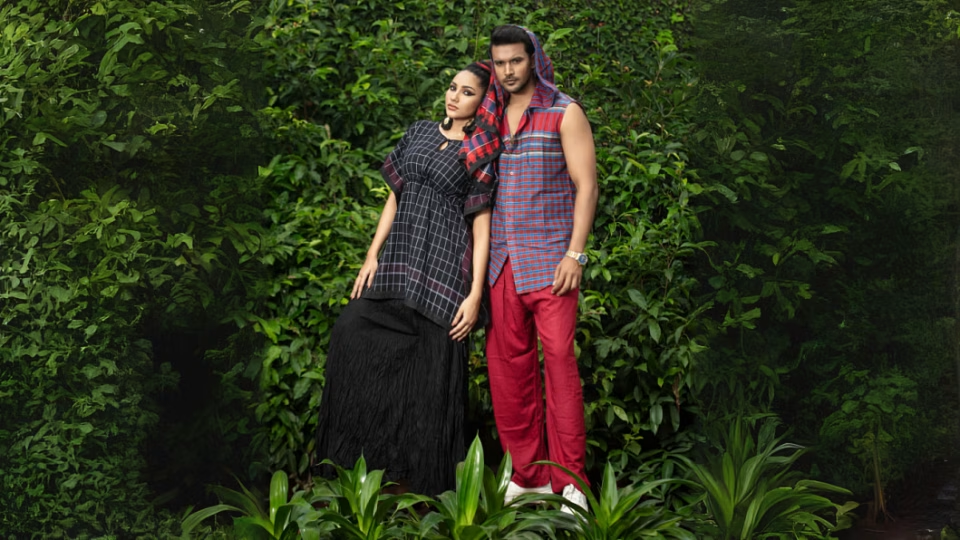October 17, 2024
DHAKA – Nothing screams Bangladesh quite like gamchas, the traditional handwoven checkered pieces of fabric, used for everything from drying off after a bath to serving as headscarves, waistbands, and even makeshift bags. After a long hiatus, these vibrant checks are now making a major comeback in the Bangladeshi fashion scene, carving out a niche through their undeniable potential to marry tradition with contemporary style.
Thanks to a resurgence of interest in traditional textiles, the humble gamcha with its soft, lightweight cotton fabric, and vibrant patterns and colours, has found itself in the middle of a rather happening fusion fashion scene in the country.
Danny Amin, lead vocalist of the band, Tulkalam, expressed his affection for gamchas and how he once took them globally on a musical venture to Portugal. “Gamcha prints are so versatile, I’d love to see them on everything. I’d love a gamcha shirt, personally — or wait, how about gamcha canvas shoes? Those would be awesome!”
Young designers, in their quest to deliver something edgy, yet rooted in “deshi culture”, now view the gamcha as one of the core components of their creations, blending it with modern aesthetics to create unique fashion statements. From kurtas, sarees, and shirts to accessories, and even shoes, gamchas are being reimagined in countless innovative ways.
Mohammad Abdul Wares, the creative talent behind Warez, recently launched his own collection of gamcha-based fashion apparel, an experimental project using typical gamchas and taant sarees from Sirajganj.
Notable among his collection are sarees, skirts, women’s tops, kaftans, hoodies and more, making the set suitable for both casual wear and more polished, urban styles, for both men and women. Paired with jeans or styled as a statement piece, these outfits can easily transition from day to night, making them a practical yet trendy choice.
The charm of gamcha-based fashion lies in its vibrant colours, breathable texture, and eco-friendly nature. “I’ve used cotton, as both gamchas and taant favour it, and I have been careful to include vibrant colours such as mustard, red, maroon and green, to stay true to the preference of the natives of our country.
Simple and profound, the gamcha does more than just add a deshi verve to modern outfits. A nod to the local weavers and artisans who have upheld this age-old tradition for so long, the gamcha helps preserve Bangladesh’s textile heritage, while also encouraging a move toward more ethical and sustainable fashion choices. The affordability of this fabric adds to its appeal, allowing people from all walks of life to enjoy this exciting trend.


